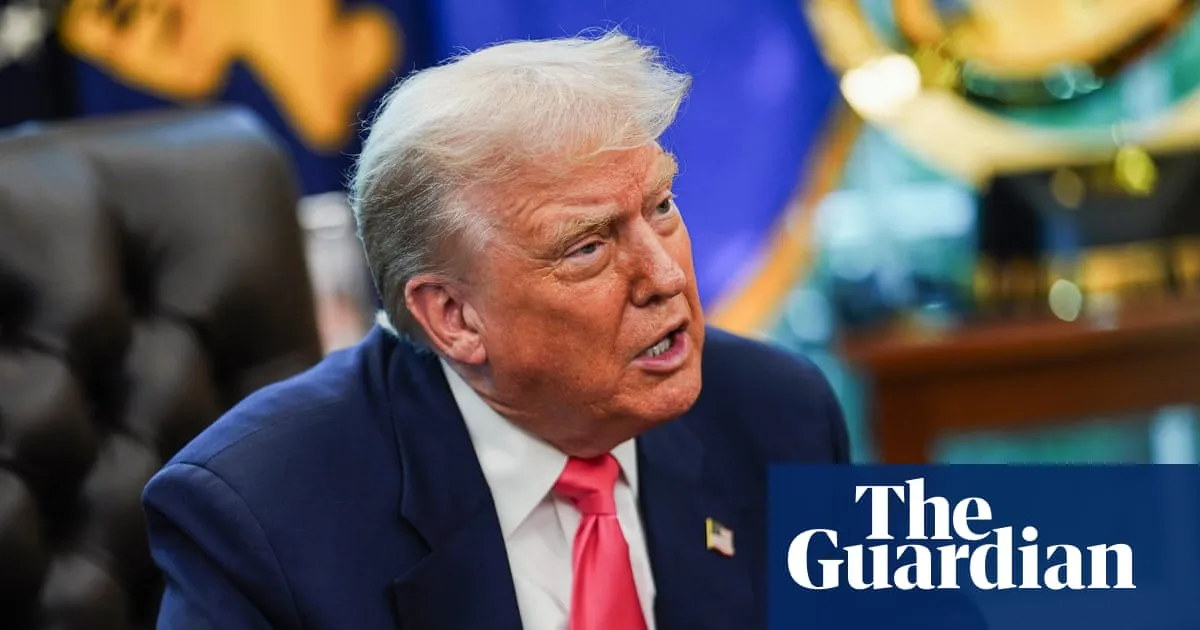
On Thursday, Donald Trump made alarming assertions regarding crime rates in Washington D.C., claiming they were at an all-time high. This statement surfaced amid a significant federal intervention in the city's law enforcement, which included the deployment of the national guard and federal agents. “Washington D.C. is at its worst point,” Trump stated from the Oval Office, suggesting that it would soon reach its "best point."
In his remarks, Trump also accused D.C. law enforcement officials of manipulating crime statistics, stating they were providing “phony crime stats” and claimed these officials were “under investigation.” His comments followed a night of protests, during which demonstrators vocally opposed federal law enforcement actions, including the stopping of numerous vehicles at a busy street checkpoint in Washington D.C.
Reports from the Washington Post indicated that approximately 20 law enforcement officers, some affiliated with the Department of Homeland Security, were conducting traffic stops for minor infractions like broken taillights and seatbelt violations. Tensions escalated as over 100 protesters gathered, chanting phrases such as “get off our streets,” according to NBC News.
This week, nearly 800 national guard troops have begun to arrive in the city, with the Department of Defense announcing that around 200 national guard members would be patrolling the streets to assist both federal and local law enforcement. Since Trump initiated the takeover on Monday, the White House reported that more than 100 arrests had been made. The Metropolitan Police Department (MPD) confirmed it had made 74 arrests on Wednesday alone, totaling 217 arrests since the takeover was announced.
On Thursday, the MPD chief issued an executive order allowing the department to notify Immigration and Customs Enforcement (ICE) about undocumented immigrants encountered during traffic stops. Previously, the MPD could not report individuals to ICE unless they had been charged with a crime. Trump applauded this decision as a “great step” but refrained from commenting on whether he had pressured the police department to adopt this agreement.
The Home Rule Act of 1973 grants the president the ability to take control of the city's police force for up to 30 days for "federal purposes" deemed necessary. Trump hinted at extending this control beyond the initial 30 days, although doing so would require congressional approval. Democratic Senate leader Chuck Schumer firmly opposed Trump's potential extension, stating, “No way,” during a podcast interview with Aaron Parnas. Schumer emphasized that his party would resist Trump’s efforts to maintain federal control over the city.
Despite Trump's dire portrayal of Washington D.C. as a crime-ridden city, data revealed that violent crime in the area reached a 30-year low in 2024, following a spike in 2023. D.C. Mayor Muriel Bowser defended the city, stating, “We don’t live in a dirty city,” and challenged the negative characterization of its residents. Additionally, Phil Mendelson, the chair of the Washington D.C. city council, remarked that while Trump politicizes the takeover, the actual relationship between law enforcement agencies has been one of collaboration, emphasizing that cooperation and additional resources would benefit the city.
Trump’s sensational claims about crime in Washington D.C. continue to spark controversy and debate, with local leaders and statistics challenging the narrative he presents.